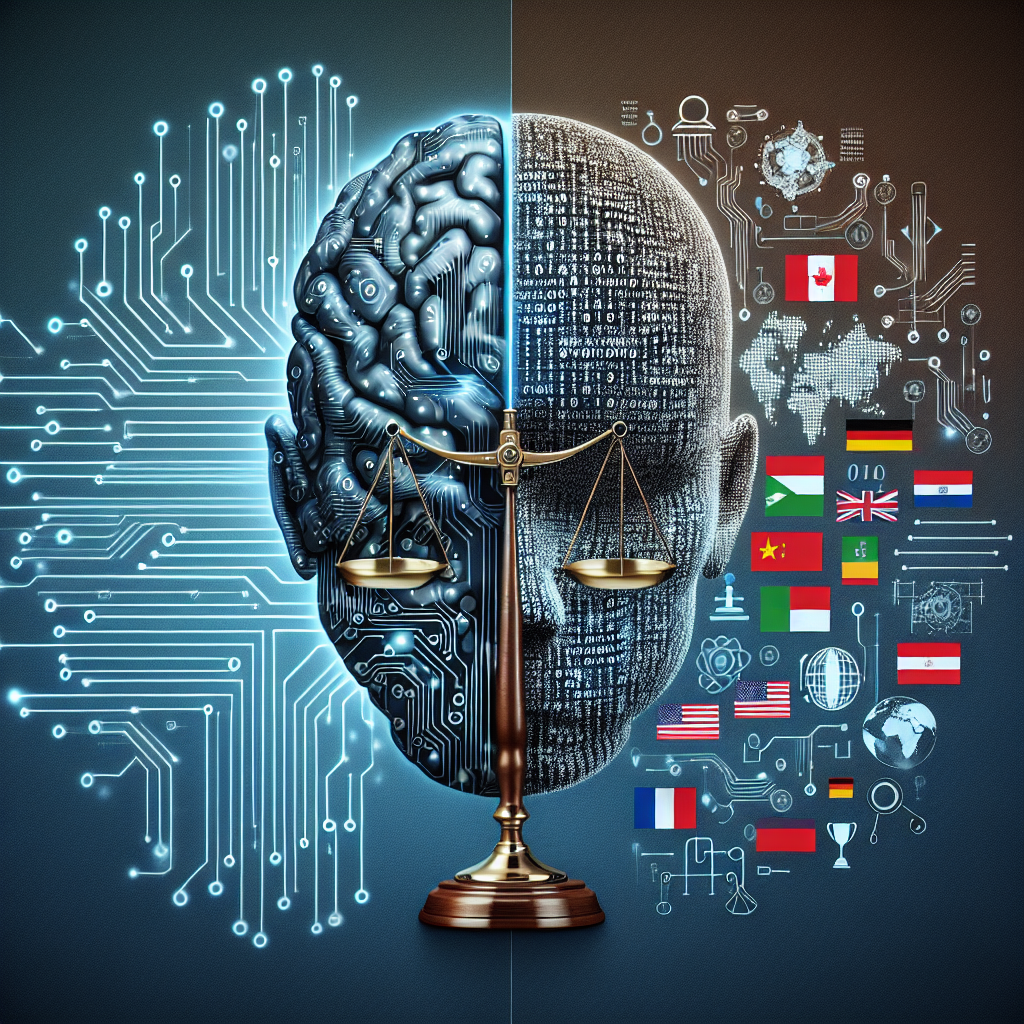Artificial intelligence (AI) has become a transformative force in nearly every aspect of society, including the field of international law. The intersection of AI and international law presents a host of opportunities and challenges, as the technology has the potential to revolutionize how legal systems operate on a global scale. From facilitating legal research and analysis to predicting outcomes in international disputes, AI is reshaping the landscape of international law in profound ways.
One of the key areas where AI is making an impact in international law is in legal research and analysis. AI-powered tools can sift through massive amounts of legal documents and data to identify relevant information and trends, helping legal professionals navigate complex legal issues more efficiently. These tools can also assist in drafting legal documents, analyzing case law, and predicting the outcomes of legal disputes, saving time and resources for law firms and international organizations.
In addition to aiding legal research, AI is also being utilized in the realm of international dispute resolution. AI algorithms can analyze data from past legal cases and international treaties to predict the outcomes of disputes, helping parties to make informed decisions about their legal strategies. AI can also be used to facilitate communication and negotiation between parties in international disputes, streamlining the resolution process and potentially reducing the time and costs associated with lengthy legal proceedings.
Furthermore, AI is being used to improve the efficiency and accuracy of legal translation and interpretation in international law. AI-powered language translation tools can help bridge language barriers in legal proceedings, ensuring that all parties have access to accurate and timely translations of legal documents and communications. This can help to promote cross-border collaboration and understanding in international legal matters, fostering greater cooperation and unity among nations.
Despite the numerous benefits that AI can bring to the field of international law, there are also significant challenges and ethical considerations that must be addressed. One of the primary concerns surrounding the use of AI in international law is the potential for bias and discrimination in AI algorithms. If AI tools are not properly calibrated and tested, they may inadvertently perpetuate existing biases and inequalities in the legal system, leading to unfair outcomes for certain individuals or groups. It is essential for legal professionals and policymakers to be aware of these risks and take steps to mitigate them through proper training, oversight, and accountability mechanisms.
Another challenge in the intersection of AI and international law is the issue of data privacy and security. As AI tools rely on vast amounts of data to function effectively, there is a risk that sensitive legal information could be compromised or misused if proper data protection measures are not in place. International organizations and legal professionals must prioritize data security and privacy when implementing AI technology in their legal practices, to ensure that confidential information remains protected and secure.
Moreover, the rapid pace of technological advancement in AI presents a challenge for international law, as legal frameworks and regulations may struggle to keep up with the evolving capabilities of AI systems. There is a need for international cooperation and coordination in developing legal standards and guidelines for the responsible use of AI in the legal sector, to ensure that AI technologies are deployed in a manner that upholds the rule of law and protects human rights.
In conclusion, the intersection of AI and international law holds great promise for advancing legal research, dispute resolution, and cross-border collaboration. By harnessing the power of AI technologies, legal professionals and international organizations can enhance their ability to navigate complex legal issues and promote justice and equality on a global scale. However, it is crucial for stakeholders in the field of international law to address the challenges and ethical considerations posed by AI, to ensure that AI is used responsibly and ethically in the pursuit of justice and peace.
FAQs:
1. How is AI being used in legal research and analysis in international law?
AI-powered tools can sift through massive amounts of legal documents and data to identify relevant information and trends, helping legal professionals navigate complex legal issues more efficiently. These tools can also assist in drafting legal documents, analyzing case law, and predicting the outcomes of legal disputes.
2. What are some of the challenges in the intersection of AI and international law?
Some of the challenges include bias and discrimination in AI algorithms, data privacy and security concerns, and the need for international cooperation in developing legal standards and guidelines for the responsible use of AI in the legal sector.
3. How can legal professionals and policymakers address the risks of bias and discrimination in AI algorithms?
Legal professionals and policymakers can mitigate the risks of bias and discrimination in AI algorithms through proper training, oversight, and accountability mechanisms. It is essential to test and calibrate AI tools to ensure that they do not perpetuate existing biases and inequalities in the legal system.
4. What steps can be taken to ensure data privacy and security in the use of AI in international law?
International organizations and legal professionals must prioritize data security and privacy when implementing AI technology in their legal practices. This includes implementing robust data protection measures, such as encryption and access controls, to safeguard sensitive legal information from unauthorized access or misuse.
5. How can international cooperation help address the challenges of AI in international law?
International cooperation is essential in developing legal standards and guidelines for the responsible use of AI in the legal sector. By working together to establish common principles and frameworks for AI governance, countries can promote the ethical and responsible use of AI technologies in the pursuit of justice and peace.

